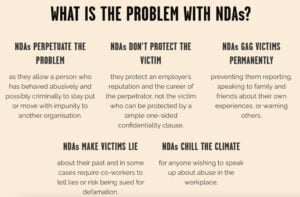Please note – this blog talks about sensitive issues regarding sexual harassment.
Tomorrow we will be holding two showcases on sexual harassment (10 am and 1 pm GMT)
Click the links above to sign up or to be added to the waiting lists – a ticket will be released to you.
Enact Solutions is holding two free livestream showcases on the 28th of March to help teams around the world tackle a large element of misogyny in the workplace – sexual harassment. The showcases will give professionals a glimpse of our experiential training program which examines the impact of sexual harassment in the workplace and how to challenge behaviours.
The showcases will each last one hour. The main aims are to:
- Examine the impact of sexual harassment in the workplace
- Identify the barriers to tackling sexual harassment in the workplace
- Signpost to support mechanisms, and processes and highlight relevant legislation
- Workshop ways in which professionals can challenge sexual harassment
Sexual harassment is an ongoing issue that has affected a staggering number of people in organisations across the globe. Our showcases are an opportunity for professionals who work in Human Resources, Equality and Diversity, and Learning and Development to explore how to take action and improve their workplace culture.
Only last week newspapers spoke about a new secret NHS report which showed that the NHS is failing to protect trainee paramedics from sexual harassment and racism. Plus, an NHS-wide survey found that there were more than 80,000 reports of sexual harassment last year. We’ll let that figure sink in for a moment.
This is not just apparent in the health and care sector but in all types of industries:
A report on sexual harassment in the US last year found that there are more claims of sexual harassment in the restaurant and hospitality industry than in any other sector of the American economy. “A survey by One Fair Wage in 2021 found that over 70% of female restaurant employees have been sexually harassed at least once while working in the industry, with 44% reporting they experienced sexual harassment from someone in a management or leadership role.”
A new anonymous survey by the campaign MeTooEP asked 1,135 EU parliament staffers between June 2023 and August 2023 about sexual harassment at work. It found that nearly half of the staff had experienced or witnessed harassment, with 15.5% of them stating they had experienced sexual harassment.
These stats not only reaffirm that sexual harassment in the workplace is a worldwide issue but also clearly exhibit the power imbalance that is struck between management and employees. It’s becoming more apparent that employees are vulnerable to workplace cultures that just accept these behaviours and act as if it’s just “part of the role”.
Power Imbalance and Culture of Impunity
Due to gender inequality being so ingrained into our society, sexual harassment gets brushed under the carpet. It has become normalised and unchallenged within many organisations, which is reinforced by the use of NDAs. There is a consistent pattern of women being silenced and consequently living in fear of losing their jobs if they speak up about their experiences.
A report published by MPs in London on the Treasury Select Committee stated loud and clear that there needs to be a complete ban on non-disclosure agreements within finance firms in the city for sexual harassment cases. They hide discrimination, encourage women to resign, and instil a damaging workplace culture.
A not-for-profit campaign group called Can’t Buy My Silence (CBMS) is committed to ending the use of NDAs to buy victim’s silence. They put it perfectly when it comes to explaining the negative effects of sexual harassment NDAs:

Preventative measures are important!
Last year, the UK amended the Equality Act 2010 to include the Workers Protection Act 2023 which comes into force in October. Employers now have a legal duty to work preventively to combat sexual harassment in the workplace. The Act ensures that employers “must take reasonable steps to prevent sexual harassment of employees in the course of their employment.” This doesn’t just include employees who are working in the building but also extends to workers who are offsite or attending events. Employers who fail to put preventative measures in place can also face financial repercussions. This highlights the importance of having rules and policies in place that help to stop sexual harassment from happening in the first place, not just dealing with the effects afterward. This is key to making employees feel safer at work.
Our sexual harassment program first and foremost helps professionals learn how to effectively challenge inappropriate behaviours in the workplace, change their workplace culture and prevent mistreatment.
Click here if you’d like to find out more about our showcases.
Zara Huxley
Sources:
More than 80,000 reports of NHS staff being sexually harassed while at work | The Independent
Over 550 EU Parliament staffers have faced harassment at work, new survey finds – POLITICO
MPs call for ban on non-disclosure agreements in sexual harassment cases | Evening Standard
More than 80,000 reports of NHS staff being sexually harassed while at work | The Independent
Worker Protection (Amendment of Equality Act 2010) Act 2023 (legislation.gov.uk)


